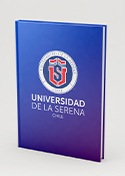The moderating role of aesthetics and information quality for acceptance of augmented reality
| dc.contributor.author | Alvarez-Marin, Alejandro | |
| dc.contributor.author | Velazquez-Iturbide, J. Angel | |
| dc.contributor.author | Castillo-Vergara, Mauricio | |
| dc.contributor.author | Acuna-Opazo, Christian | |
| dc.date.accessioned | 2024-05-10T02:20:00Z | |
| dc.date.available | 2024-05-10T02:20:00Z | |
| dc.date.issued | 2023-10-22 | |
| dc.description.abstract | This study explores the moderating role of aesthetics and information quality on the technological acceptance of augmented reality. A technology acceptance model with the following variables was used: perceived ease of use, perceived usefulness, attitude towards using, and behavioural intention to use. Analysis was conducted by using structural equation modelling and a participation of 90 engineering students. Participants used an augmented-reality app for electrical resistive circuits, which works as a virtual laboratory. The app allows manipulating circuit elements and computing voltage and amperage values using the loop method, applying Kirchhoff's voltage law. The results suggest that aesthetics and information quality influence attitudes towards use. These findings show the importance of aesthetics and information quality in accepting augmented reality apps; therefore, designers and developers should consider these factors. This type of study has not been investigated previously. | |
| dc.identifier.uri | https://publicacionesabiertas.userena.c/handle/123456789/15 | |
| dc.language.iso | en | |
| dc.publisher | Taylor&Francis | |
| dc.title | The moderating role of aesthetics and information quality for acceptance of augmented reality |
Files
License bundle

- Name:
- license.txt
- Size:
- 1.71 KB
- Format:
- Item-specific license agreed to upon submission
- Description: